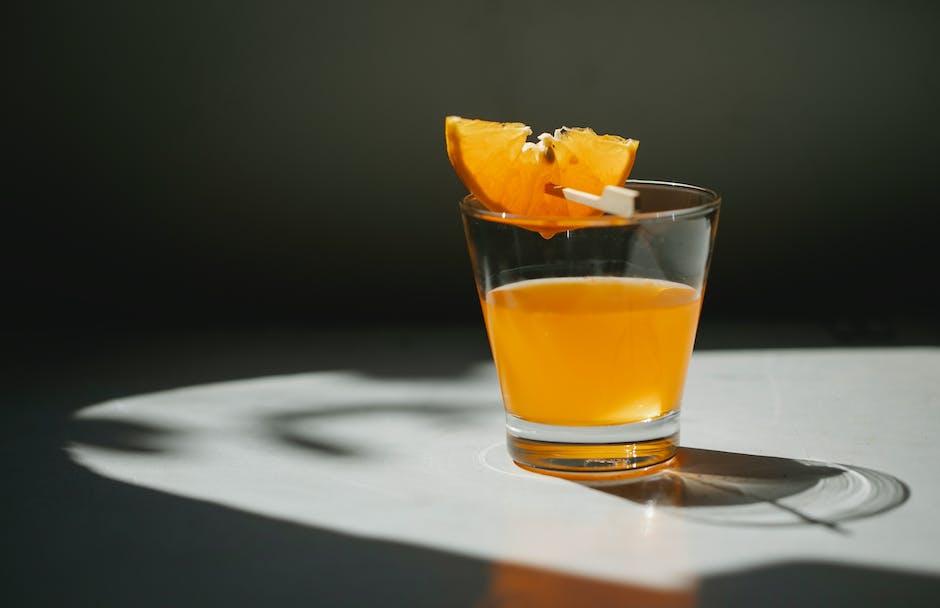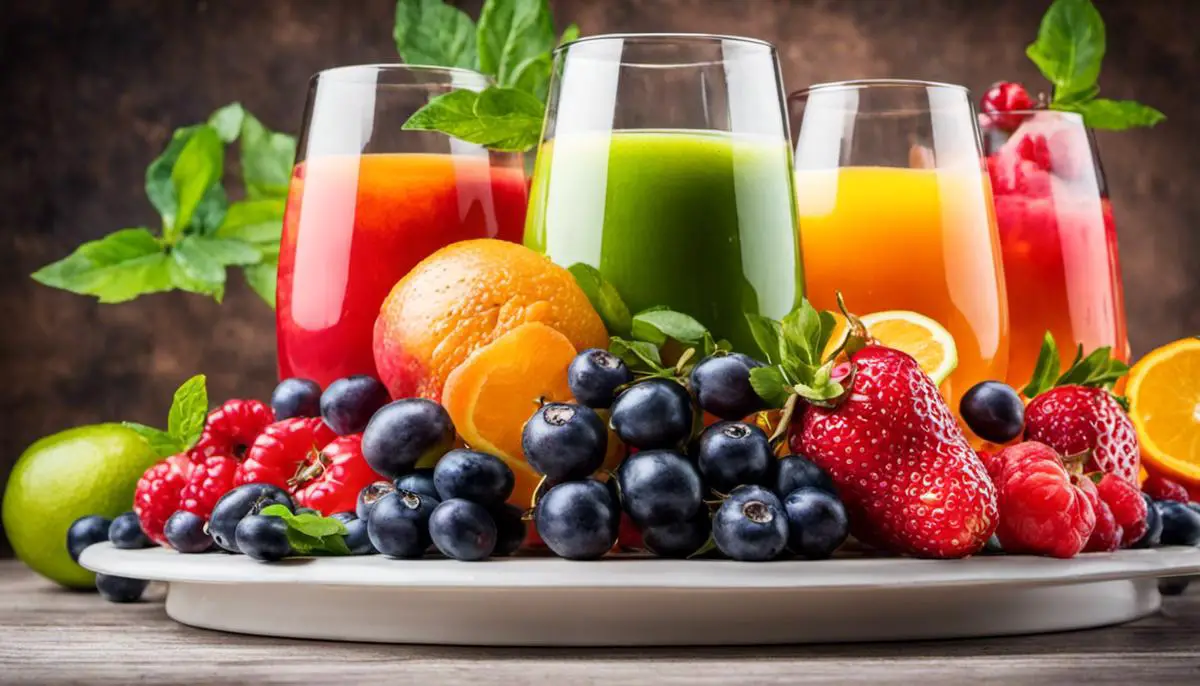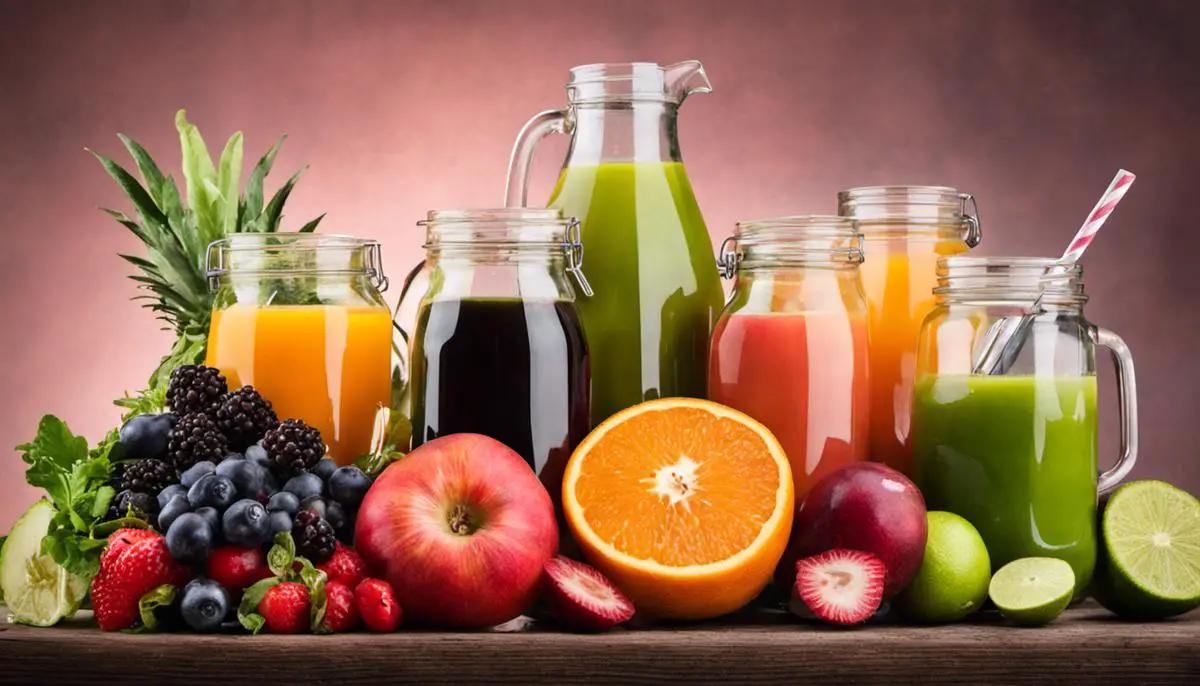The hustle and bustle of modern life often leave us searching for ways to improve our sleep quality. Alongside factors like regular exercise and good sleep hygiene, nutrition plays a significant role in determining our sleep quality. In fact, a growing body of research suggests that our diet, particularly our intake of specific nutrients and vitamins, can significantly impact our sleep patterns. However, it is equally important to be aware of foods that disrupt our sleep, such as those high in caffeine or sugar. To help you navigate this complex subject, we’ll delve into the intimate relationship between nutrition and sleep, and present you with some zestful juice recipes made from fruits and vegetables high in sleep-promoting nutrients.
Understanding the Nutrition-Sleep Connection
Understanding Nutrition-Sleep Connection: The Research
Numerous studies have found a significant correlation between nutrition and the quality of sleep. According to a report published in the Journal of Clinical Sleep Medicine, certain nutrients may play an essential role in influencing sleep patterns. For example, a deficiency in minerals like magnesium and potassium or certain vitamins like B6 can reportedly lead to insomnia. Additionally, tryptophan (an amino acid) that helps the body produce serotonin, a sleep-promoting substance, also contributes to sleep quality. Moreover, research published in the American Journal of Clinical Nutrition reveals that a diet high in sugar, saturated fat, and low in fiber is linked to lighter, less restorative sleep with more interruptions.
Essential Nutrients for Better Sleep
A well-balanced diet that includes a variety of fruits, vegetables, lean proteins, and whole grains can provide these essential nutrients that promote better sleep:
- Vitamin B6: This nutrient aids in the production of serotonin and melatonin, which are crucial for the sleep-wake cycle. Foods high in vitamin B6 include fish, bananas, and chickpeas.
- Magnesium: A lack of magnesium can lead to restless leg syndrome and nighttime muscle cramps. Good sources of magnesium include almonds, spinach, and black beans.
- Potassium: While more research is needed in this area, initial findings suggest that potassium may help to promote better sleep. Sources of potassium include bananas, sweet potatoes, and oranges.
- Tryptophan: It’s an amino acid that when ingested gets turned into the neurotransmitter serotonin and then converted into the hormone melatonin. Foods high in tryptophan include turkey, eggs, and cheese.
Foods that Disrupt Sleep
Just as certain foods can aid in sleep, others can disrupt it. All stimulants should be avoided as much as possible for quality sleep.
- Caffeine: Found in coffee, chocolate, cola, and tea, caffeine can last in your system for up to eight hours, affecting your ability to fall asleep and stay asleep.
- Sugar: Although it may cause a temporary boost in energy, sugar will eventually cause an energy crash, which can interfere with sleep.
- Alcohol: While you might think a nightcap can help you fall asleep faster, alcohol prevents your body from entering the deeper stages of sleep, where true rest and recovery occur.
By understanding the research and nutritional needs for a better night’s sleep, you can modify your dietary habits accordingly to promote restful, uninterrupted sleep.

Ingredients for Sleep-Inducing Juices
Identifying Sleep-Promoting Ingredients
To create a juice that aids in better sleep, it’s crucial to identify fruits and vegetables that are rich in sleep-promoting nutrients. Several fruits and vegetables are known for their sleep-inducing properties.
Cherries
Cherries, particularly tart cherries, are an excellent source of melatonin, a hormone that regulates the body’s internal clock and sleep-wake cycle. In addition, tart cherries are rich in proanthocyanidins and anthocyanins, two types of antioxidants associated with calming the nervous system and promoting sleep. The suggested serving size is half to one cup of cherries.
Bananas
Bananas are an excellent source of magnesium and potassium. These two minerals function as muscle and nerve relaxants, thereby promoting better sleep. Moreover, bananas are rich in tryptophan, an amino acid converted to serotonin and melatonin, the brain’s key calming hormones. About one medium-sized banana is a good serving size for a sleep-enhancing juice.
Kiwis
Research suggests that kiwis could contribute to better sleep due to its serotonin content, a brain chemical that helps regulate your sleep cycle. Kiwis are also rich in antioxidant vitamins C and E, which are believed to promote better sleep. Two medium kiwis would make a sufficient serving for a juice recipe.
Leafy Greens
Leafy greens like spinach and kale are packed with calcium, which your body uses to produce melatonin, a sleep hormone. Additionally, they are good sources of magnesium, another mineral linked to improvements in sleep quality. Aim for one cup of packed, fresh leafy greens as a serving size for your juice.
Additional Ingredients
Other ingredients that promote sleep include nuts and seeds, particularly almonds and walnuts, because they are rich in melatonin and magnesium. In addition, fruits like pineapple, oranges, and strawberries are known to be high in vitamin C and other antioxidants that can promote sleep readiness.
When it comes to actual juice preparation, you may choose to blend these fruits and vegetables as smoothies while others may prefer their produce juiced, seeds and all. Regardless of the method, ensuring a proper serving size and a balance of these sleep-enhancing ingredients will help you create a delicious drink that’s beneficial for a good night’s sleep.

Preparing Sleep-Inducing Juices
Selecting Your Sleep-Inducing Ingredients
Juices for better sleep can be prepared using a wide variety of fruits and vegetables. Certain ingredients have been proven to help induce sleep. These include cherries, bananas, kiwi, oranges, and pineapples, which are rich in melatonin – the sleep hormone. Magnesium and potassium rich fruits and veggies like spinach and avocados also improve sleep quality. Almonds, walnuts, and tart cherries are also effective. Experimenting with combinations can lead to a variety of enjoyable, sleep-inducing juice recipes.
Preparing Your Ingredients for Juicing
First, it’s vital to thoroughly wash and rinse all produce. For fruits like apples, pears, peaches, that might hold onto pesticide residues, peeling is recommended. Many fruits and vegetables can be juiced whole, but harder ones like pineapples and melons should have their rinds removed. Tough seeds or pits from fruits like cherries, peaches, or plums should be discarded, but smaller, softer seeds from fruits like cucumbers or apples can be left in.
Simple Hand-Pressing Techniques
If you don’t own a juicer or blender, hand-pressing is an easy technique. To use this method, all you need is a citrus reamer, juice squeezer, or even just a fork. Simply cut your fruit in half and press the open side down on the juicer, rotating until all the juice is extracted. Use a strainer to remove any seeds or pulp, if desired.
Using a Juicer for Sleep-Inducing Juices
A juicer is an excellent tool for extracting th most juice from your produce. To use a juicer, follow the manufacturer’s instructions which typically involve feeding the chopped produce into a tube where it gets ground, and the juice separated from the pulp. Remember to start with softer fruits or veggies, followed by harder ones to push through any stuck pieces.
Blending for Sleep-Inducing Juices
Blenders are a great alternative to juicers, especially if you prefer a thicker, smoothie-like drink. To use a blender for your sleep-inducing juice, simply place the chopped fruits or veggies into the blender, add a small amount of water, and blend until smooth. For a smoother juice, you can strain the mixture to remove pulp.
Creating Your Sleep-Inducing Juice Recipes
Now that you know how to prepare sleep-inducing juices, it’s time to experiment with different combinations. You could start with a simple orange and banana juice, or perhaps a spinach and kiwi blend. Adding a handful of almonds or walnuts adds a nice flavor and boosts the sleep-inducing power of your juice. You can also try out a refreshing pineapple and tart cherry juice for a good night’s sleep. Remember, the goal is not only to create a juice that promotes sleep but one that is enjoyable to your taste.
Properly Cleaning Up After Juicing
After creating your sleep-inducing juices, it’s essential to clean your tools promptly. Bits of pulp or juice left behind can spoil and lead to bacteria growth. For hand juicers, cleaning is as simple as washing with soap and water. For electronic juicers or blenders, disassemble as per instructions and wash the removable parts. Dry all parts thoroughly before reassembly. Other parts that aren’t detachable can be cleaned with a soft, damp cloth.

Sampling and Fine-Tuning Juice Recipes
Understanding Your Taste Preferences and Sleep Needs
When embarking on your journey to creating perfect juice recipes for better sleep, the first step is to understand your taste preferences and sleep needs. Since everybody’s palette differs, it is crucial that you focus on incorporating fruits and vegetables that you enjoy. Similarly, understanding your sleep needs—whether that’s deep sleep, longer sleep durations, or falling asleep faster—can guide your ingredient selection.
Sampling Different Juice Combinations
Next, start by experimenting with different juice combinations. To create your juices, you will need a good reliable juicer. Choose from an array of fruits and vegetables that contain sleep-boosting properties. Tart cherries, for example, contain a significant amount of natural melatonin, a hormone responsible for regulating sleep. Bale, lettuce, celery, and other leafy greens are rich in magnesium and calcium, which help promote sleep.
Juice Recipe Suggestions
Begin with a simple recipe. For example, juice a handful of tart cherries and an orange, as vitamin C can help boost the bioavailability of plant-based iron from the tart cherries. Alternatively, try combining leafy greens like kale or spinach with a soothing ingredient such as chamomile tea. The taste profile will predominantly be driven by sweet, tart or savory ingredients, such as apples, oranges, or tomatoes.
Fine-Tuning Your Recipes
Taste your concoction. If the juice is too harsh or not to your liking, consider adding a sweet fruit like an apple, a pear, or a few drops of stevia. To adjust the consistency, add water to make your juice less dense. Keep in mind that fruits have natural sugars, so if you’re drinking juice close to bedtime, balance fruit with vegetables to avoid a sugar rush.
Adjusting for Effectiveness
Once you’ve discovered combinations that you enjoy, begin monitoring its effects on your sleep. It’s important to note that juices should be consumed at least 2-3 hours before bedtime to avoid digestive discomfort during the night. Some signs of effectiveness to look for include: falling asleep quicker, less nightly awakenings, a more refreshing feeling upon waking, or a visible change in your energy levels throughout the day.
Becoming Comfortable with Your Juice Recipes
Over time, you should be able to fine-tune your sleep-promoting juice recipes to meet both your taste preferences and sleep needs. Remember: It’s all about finding the right balance between flavor and function. While there is no one-size-fits-all solution, experimenting with various combinations can lead you to a personalized recipe that helps you rest better. Keep a journal documenting each juice recipe, noting taste and sleep improvements, so you can refine recipes over time.

Transitioning to a diet that focuses on sleep-promoting foods doesn’t mean you’re limited to boring, tasteless meals. On the contrary, the vast array of fruits and vegetables with sleep-supporting properties — from cherries and bananas to leafy greens and kiwis — ensures a plentiful palette of flavors. Crafting a delicious, sleep-inducing juice that suits your individual taste becomes an exciting exploration rather than a chore. As you experiment and fine-tune these recipes, don’t forget to take note of what works best for you. Remember, the goal here is not just to feed your body but to also experience the calming, restorative gift of a good night’s sleep.
